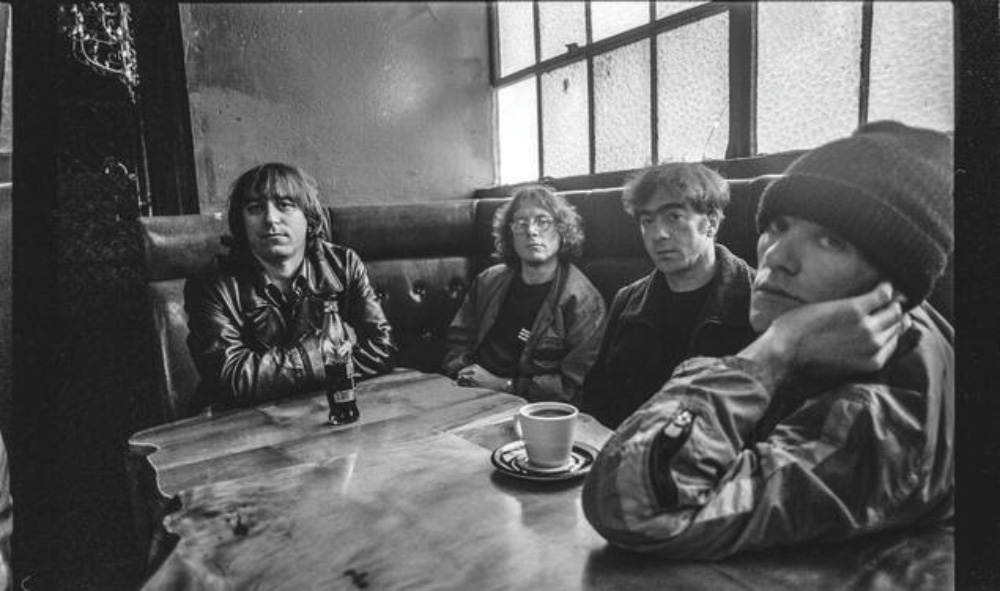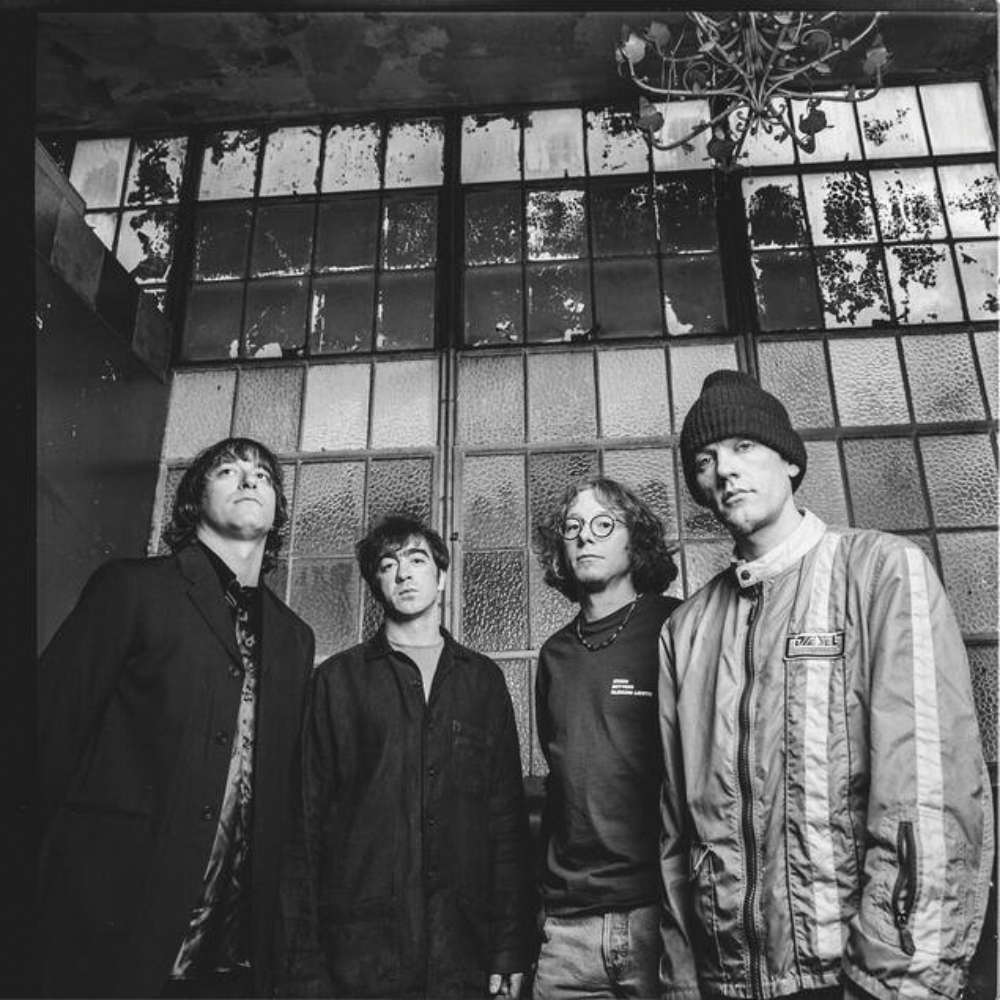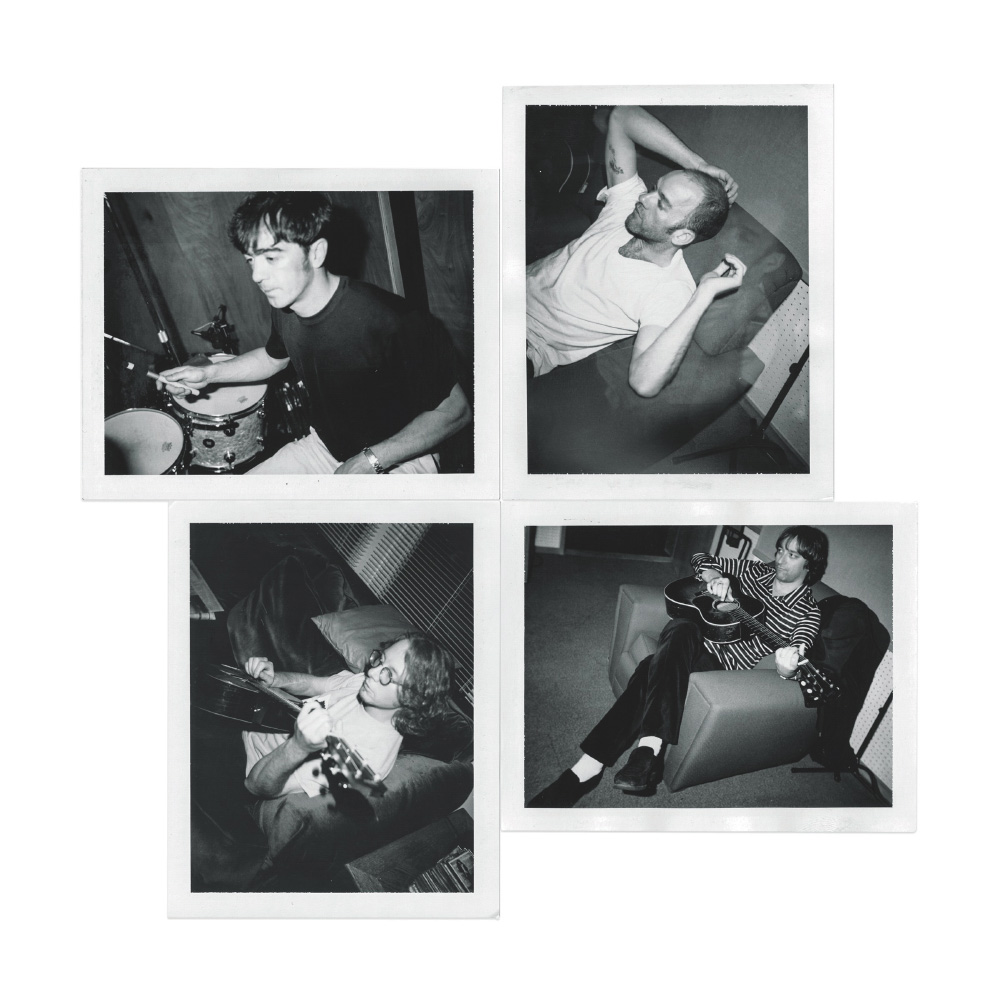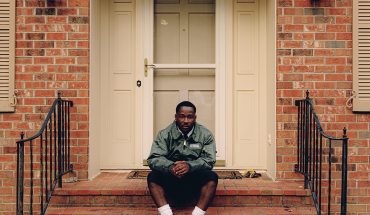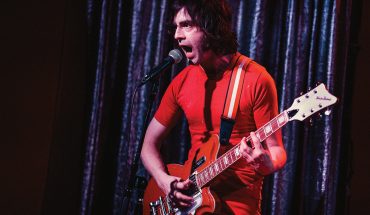Did you know that the legendary rock band got its start in Mitch Easter’s parents’ garage in Winston-Salem?
by David Menconi
R.E.M. was one of the most heralded American bands of the late-20th century. Hailing from Athens, Georgia, they had number-one albums through the 1990s, won a few Grammy Awards, and were inducted into the Rock and Roll Hall of Fame in their first year of eligibility (2007).
Yet for all that commercial success, the R.E.M. song that is archived in the Library of Congress’ National Recording Registry of “culturally, historically, or aesthetically important” records is one they recorded in a garage in nearby Winston- Salem, 40 years ago.
“Radio Free Europe” was the very first single R.E.M. ever released, way back in 1981 on Hib-Tone Records, a small independent label. The group would reprise that song two years later in a new version as the first track on their full-length debut album Murmur. But the recording that’s in the registry is the rougher, rawer, and much, much faster 1981 version, which was reissued this past summer in honor of its 40-year anniversary.
“The version I prefer is the imaginary one between the two, faster like the old version but with the posher high-fi sound of Murmur,” says Mitch Easter, who recorded both. “That faster version and punky spirit is definitely what they were like back then. It’s a true garage record with a teenage vibe that I will forever like.”
That garage was at Easter’s parents’ house in Winston-Salem, where he ran the aptly named Drive-In Recording for about 20 years. R.E.M. was his breakthrough client. He oversaw their earliest recordings at the Drive-In, and then co-produced their first two albums, 1983’s Murmur and 1984’s Reckoning, at Reflection Studios in Charlotte with Don Dixon.
That’s a fitting indicator of just how present R.E.M. was in North Carolina during the early 1980s, because the Old North State was their home away from home. R.E.M. played its first- ever out-of-town show in July 1980 at The Station in Carrboro, although that came about due to happenstance.
Jefferson Holt, an aspiring young music impresario in Chapel Hill, booked shows at The Station and had two other well-known Athens acts, Pylon and Method Actors, cancel on him. On the recommendation of a friend, he booked R.E.M., a group he’d never heard. They were an instant hit, and Holt went on to be their manager for 15 years.
The following March, Lynn Blakey saw R.E.M. for the first time at a tiny burger/pizza joint in Greensboro called Friday’s. Blakey was a freshman at University of North Carolina- Greensboro, and an interesting-looking band flyer drew her in. She cashed a bad check at the pastry shop next door to pay the $3 cover for herself and her roommate to see R.E.M., and it was a life-changing experience.
“It was a weeknight and there were maybe 20 people there,” Blakey says. “But they were amazing from the first song they played, Buddy Holly’s ‘Rave On.’ They had this whole kinetic kind of vibe that just exploded, and everybody was dancing. I’d been moved by bands before, but there was something very from-the-ground-up about them that I could really relate to. I was blown away. I was not yet a musician at that point and they were a big reason why I ended up play- ing music myself.”
Blakey went on to a long career that continues to this day, singing alongside Whiskeytown singer Caitlin Cary in Tres Chicas, and also, for a time, in Easter’s band Let’s Active. She saw R.E.M. countless more times, especially early on when they came back to North Carolina every couple of months.
As for Easter, his R.E.M. bona fides set him up as an in-demand producer, first at the Drive-In and then at the roomier confines of Fidelitorium Recordings, the Kerner- sville studio he has owned and operated since 2000. His gold records for the R.E.M. albums hang on an upstairs wall there.
There has been much hoopla this year over the “Radio Free Europe” anniversary, with people revisiting R.E.M.’s old days. Easter found a lot of the attention amusing, given that no one involved in “Radio Free Europe” 40 years ago had any idea just how significant it would prove to be.
“It’s funny about that being seen as a massive historical moment and document, when it was just a quickie weekend session that studios like ours did,” he says. “Young bands would save their money from shows to record so they’d have a tape to play for clubs and get more bookings. In the back of their minds was probably the idea to put out a record, but the immediate goal was a demo. We just bashed it out — like you do.”
This article was originally published in the November, 2021 issue of Walter Magazine.

